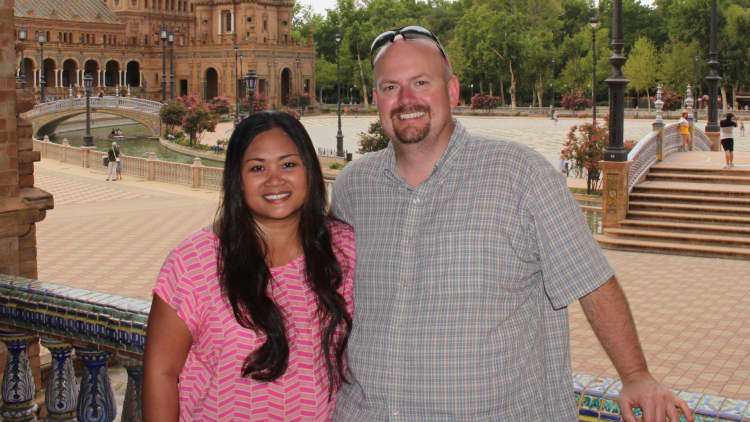Americans expect to have a quarter of a million dollars saved by retirement, according to a 2018 survey from Provision Living. In an ideal world, though, the 2,000 survey respondents said they would want decidedly more: an average of about $610,000.
Unfortunately, that may not be enough: Depending on where you live, you could blow through even $1 million as a retiree in as little as 12 years, according to a 2018 report from personal finance site GOBankingRates. And GBR notes that, since the average person retires at age 63 and has a life expectancy of about 85, "Americans should plan to spend 22 years in retirement."
The survey notes that, currently, 43 percent of millennials have under $5,000 in retirement savings.
How do you know how much money you need for your golden years? The answer is highly personal and depends on your lifestyle and spending habits, but there are a few basic guidelines to follow if you want to retire comfortably.
For starters, many experts, including co-founder of AE Wealth Management David Bach, say that if you set aside at least 10 percent of your income, you'll be fine. More is better: Bach adds that if you want to retire "rich," save 15 to 20 percent and, if you want to retire early, save 20 percent or more.

Retirement-plan provider Fidelity Investments suggests you have 10 times your final salary in savings if you want to retire by age 67. Here's a timeline you could follow, Fidelity says, to get to that magic number:
- By age 30: Have the equivalent of your starting salary saved
- By age 35: Have two times your salary saved
- By age 40: Have three times your salary saved
- By age 45: Have four times your salary saved
- By age 50: Have six times your salary saved
- By age 55: Have seven times your salary saved
- By age 60: Have eight times your salary saved
- By age 67: Have 10 times your salary saved
Determining how much you'll need boils down to what you want your future lifestyle to look like and how much it will cost to fund it. Tony Robbins, best-selling author of "Money: Master the Game," factors that into his simple, two-step formula for finding your "magic number":
- Determine how much money it takes to maintain your lifestyle. "To clarify, this is not how much you earn, but how much you spend," Robbins notes on his blog. For example: "If you make $100,000 but live off of $80,000, then this number would be $80,000."
- Multiply that number by 20.
Once you have a number in mind, you can start working towards reaching that goal.
The simplest starting point is to invest in your employer's 401(k) plan, a tax-advantaged retirement savings account, or other retirement savings accounts, such as a Roth IRA or traditional IRA.
No matter how you choose to save, the most important step is to open at least one account.
Next, follow these three steps so your money can grow over time:
- Contribute as much as you can. If you're funding a 401(k), the contribution limit for 2018 is $18,500 for workers under age 50. In 2019, it will increase to $19,000. If you're funding a Roth IRA or traditional IRA, the maximum yearly contribution is $5,500 for workers under age 50. In 2019, it will increase to $6,000.
- Automate your contributions. Have your employer do a payroll deduction or have your money taken out of your checking account and sent straight to your retirement account. After all, you can't spend money you never see.
- Get in the habit of upping your savings consistently. Do this every six months, at the end of each year or whenever you get a raise. Again, if you make this automatic by setting up "auto-increase," you won't forget to up your contributions, or talk yourself out of setting aside a larger chunk.
Don't miss: Everything you need to know about 401(k)s, IRAs and other retirement savings accounts
Like this story? Subscribe to CNBC Make It on YouTube!




